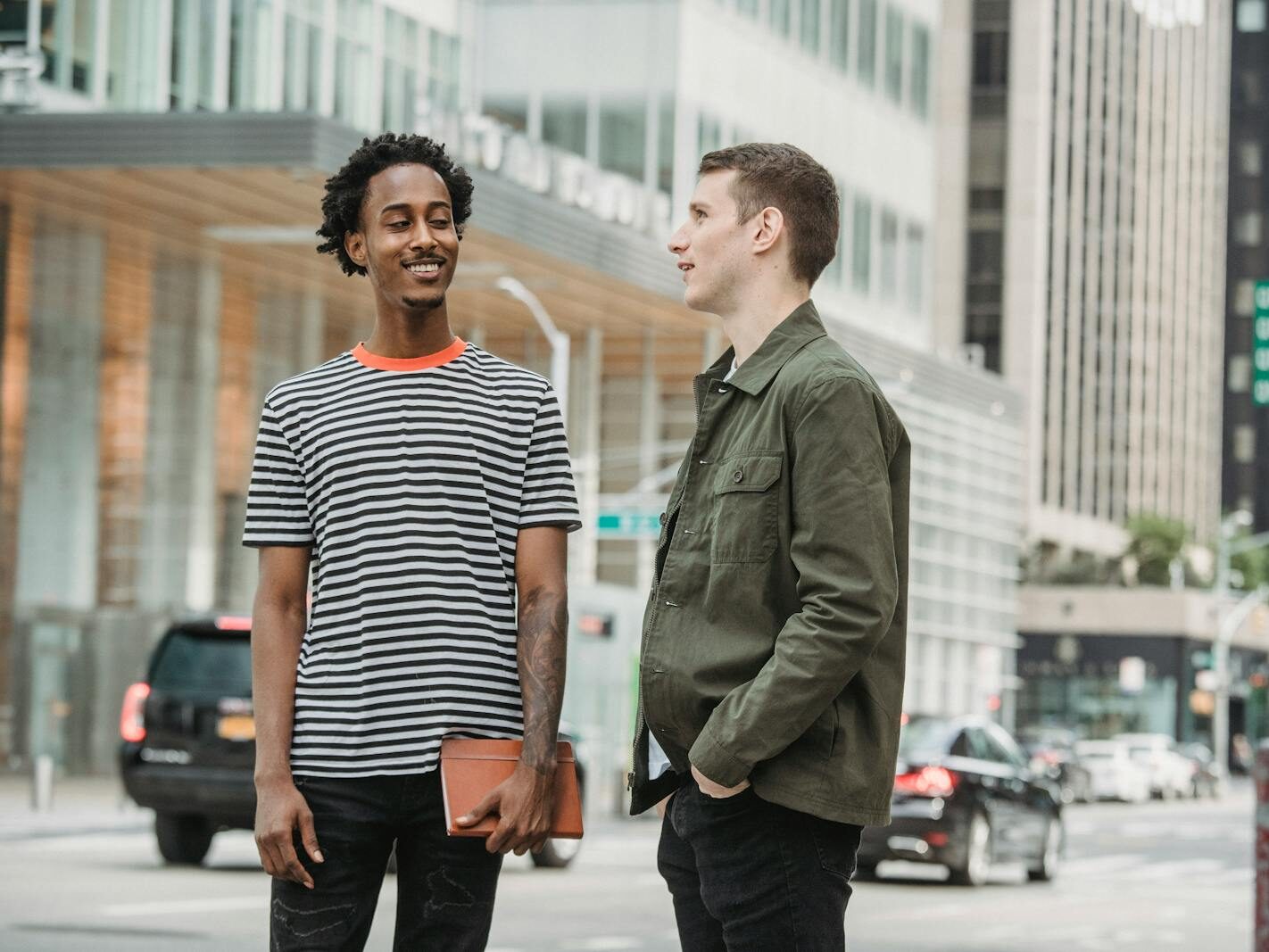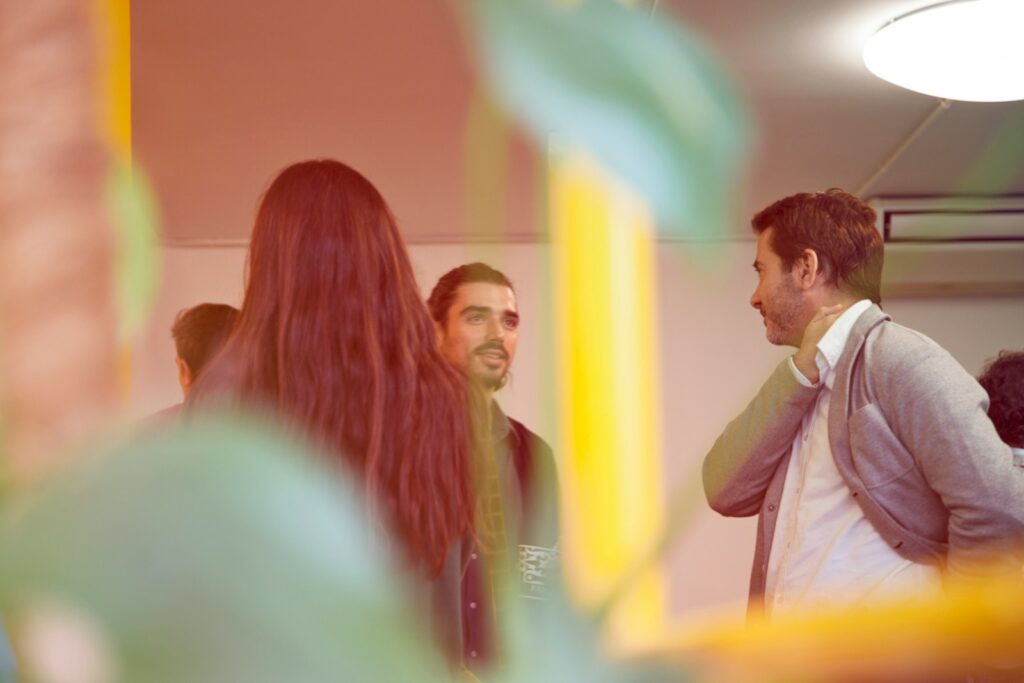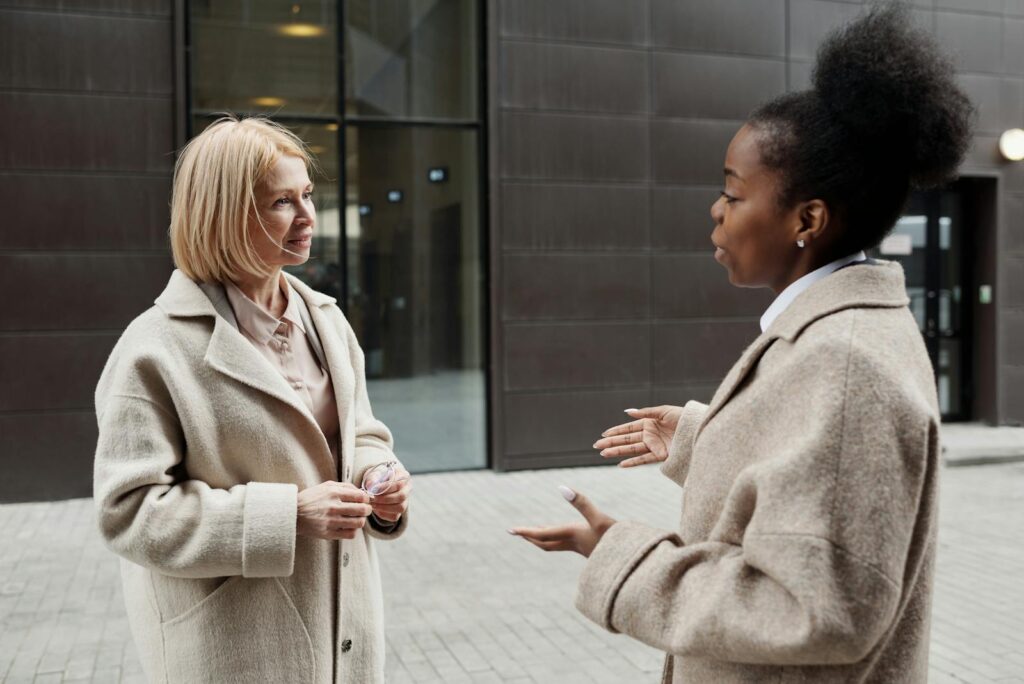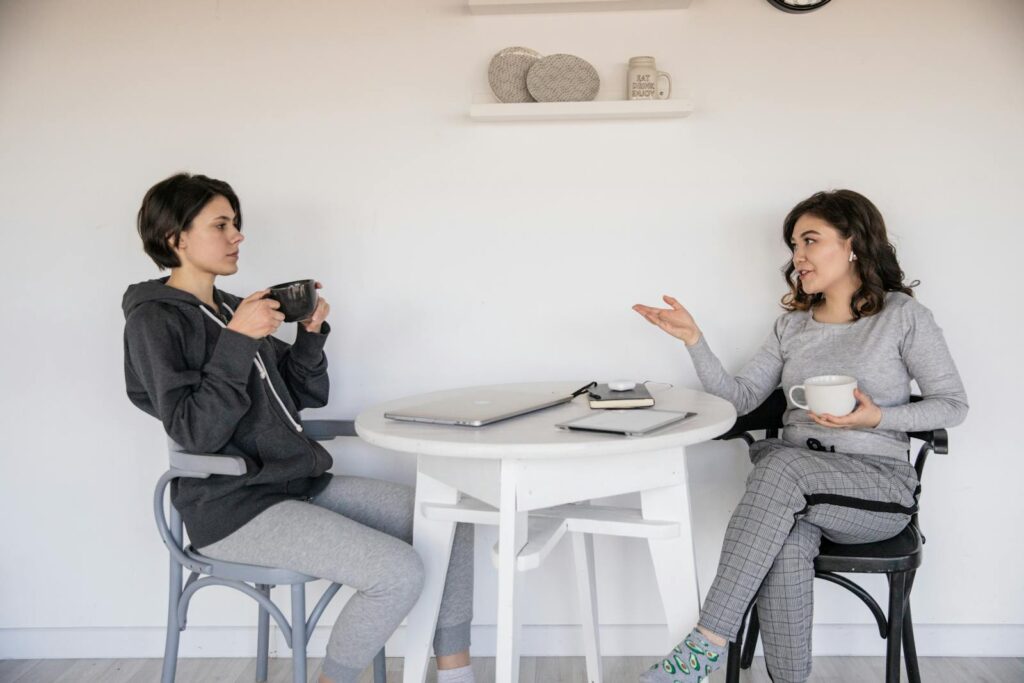
First impressions stick with people more than we realize. It’s not always the big things that shape them, but the small habits that make someone decide if they like you or not. Here are some subtle things you might be doing that can instantly ruin how people see you when you first meet.
Not Making Eye Contact

Looking away too much makes people think you’re nervous, distracted, or not really interested in them. Eye contact shows confidence and that you’re paying attention. You don’t need to stare, but glancing around the room or at your phone instead of the person in front of you gives off a cold vibe. A steady, relaxed gaze makes a much better impression right away.
Forgetting Someone’s Name

When you forget a person’s name seconds after they tell you, it feels like you weren’t listening. People want to feel remembered. A small effort like repeating their name once or twice helps you keep it in mind and shows respect. It might seem minor, but getting this wrong can make someone feel pretty unimportant from the start.
Talking Only About Yourself

It’s natural to share your story, but if you don’t give the other person a chance to speak, you come across as self-centered. First meetings should feel like a back-and-forth, not a one-sided monologue. Asking simple questions about the other person makes them feel noticed, and that’s something they’ll remember much more positively.
Checking Your Phone Too Often

Nothing kills a first impression faster than pulling out your phone while someone’s talking. Even quick glances at notifications suggest you’d rather be somewhere else. People notice when your attention drifts, and it makes them feel less valued. Putting your phone away shows you’re present, which makes conversations feel much more genuine and respectful.
Having a Weak Handshake

Handshakes still matter in many places, and a limp grip can make you seem unsure of yourself. On the flip side, squeezing too hard feels aggressive. The sweet spot is a firm but comfortable shake that matches the other person’s energy. It’s a small detail, but it can set the tone for how people view you moving forward.
Forcing Too Much Humor

Trying too hard to be funny can make people feel uncomfortable, especially if the jokes don’t land. Humor works best when it’s natural, not forced. If your first meeting feels more like a comedy act than a conversation, people may see you as insecure instead of charming. A relaxed, genuine laugh makes a much better impact than over-the-top jokes.
Interrupting While They Speak

Cutting people off, even if you’re excited to respond, makes them feel unheard. Everyone wants space to finish their thoughts. When you interrupt, it looks like you value your words more than theirs. Letting someone complete their sentence before jumping in makes you come across as patient and respectful, which leaves a much stronger impression.
Using Negative Body Language

Crossed arms, avoiding smiles, or constantly fidgeting can send signals you don’t mean to give. People often read these as signs of boredom or defensiveness. Even if you’re just nervous, the vibe comes off wrong. Open gestures, small nods, and relaxed posture make you seem much more approachable and friendly right from the start.
Talking Too Fast

Speeding through your words makes people feel like you’re rushing them, or worse, hiding something. It also makes it harder to follow what you’re saying. Slowing down shows calmness and confidence. Pausing here and there keeps the conversation smooth and gives the other person time to respond, which makes everything feel much more natural.
Not Smiling Enough

A smile can change the whole tone of a meeting. Without it, you risk coming across as very cold or distant. Smiling makes people feel comfortable, and it shows you’re happy to be there. It doesn’t mean you have to grin constantly, but a few genuine smiles make you seem much more approachable and easy to connect with.
Overdressing or Underdressing

The way you dress gives people instant clues about you. Showing up too casual when everyone else looks polished makes you seem careless. Dressing way over the top can also feel out of place. The goal is balance—looking put together without trying too hard. The right outfit helps people focus on you, not what you’re wearing.
Being Overly Agreeable

Saying yes to everything might seem polite, but it can make you seem fake. People respect honesty, even if it’s something small like admitting you haven’t seen the same movie or don’t share the same opinion. Nodding at everything just to fit in can make you forgettable. Being genuine always makes a much stronger first impression.
Not Listening Closely

Sometimes you think you’re listening, but your mind drifts to what you’ll say next. People can tell when your responses don’t match what they said. Active listening—like nodding, repeating a key point, or asking a follow-up question—shows you’re engaged. Even a small effort here makes people feel much more valued and respected.
Overexplaining Yourself

When you pile on too many details, people tune out. It can make you sound unsure of your point or even nervous. Keeping things simple and clear leaves a sharper impression. You don’t need to share every little backstory when someone asks a basic question. A short, direct answer makes you seem confident and easier to connect with.
Not Saying Thank You

Gratitude goes a long way in shaping first impressions. Forgetting to say thank you, whether it’s for someone’s time, a small gesture, or even just a compliment, makes you look unappreciative. A simple thank you shows warmth and good manners. It’s very easy to end a first meeting on a positive note that people will remember.

